How about some insects for dinner?
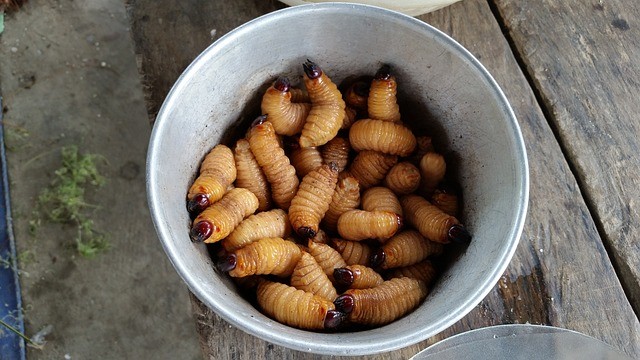
Grubs image avocado876
Will these crawly creatures be our future food?
It is a fact that at the rate we are going, there will not be enough food to feed the billions of people on our earth.
We are 7 billion already, and in approx 13 years, we will reach 8 billion. If nothing happens, the world population will continue to grow. By the year 2056, there could be 10 billion people living on this planet. It is uncertain that this will happen since humanity is set on destroying itself.
Think Global Warming is Climate Change and its already known horrible effects, then add on the unknown surprises. Perhaps we do not make it at all. Our ozone layer could malfunction with all this 5G radiation, who knows?
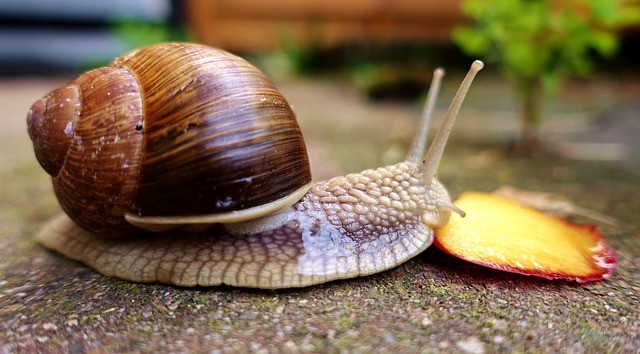
Snail image Alexander
A new diet for the world
But just in case we do make it, what are we going to eat? If we switch over to the Flexitarian diet, there is a good chance a lot of people will have something to put on their plate. It means we have to change our eating habits. Hopefully, by that time, the 7000 forgotten crops have become part of our diet.
Even if this is implemented, there could very well be a lack of protein, as we will greatly reduce meat intake. Remember that cattle kept for food is one of the causes of Global warming. They are responsible for 14.5% of greenhouse gases, so you can understand that reducing large-scale cattle production for food is a positive thing.
I am not a vegetarian, but I do realize that the dominant method of raising livestock for food is awful for the animals and bad for our health. Massive cattle feeding operations use hormone infused grains, GMO corn (with its requisite glyphosate dosage), and they even keep the animals in pens in unclean conditions.
If you have to eat red meat, make sure the cows are happy cows, and by this, I mean that they have raised them on meadow grass and allowed to live a calm life. Please reduce your intake of meat and when you do, only eat meat from well treated and happy animals.
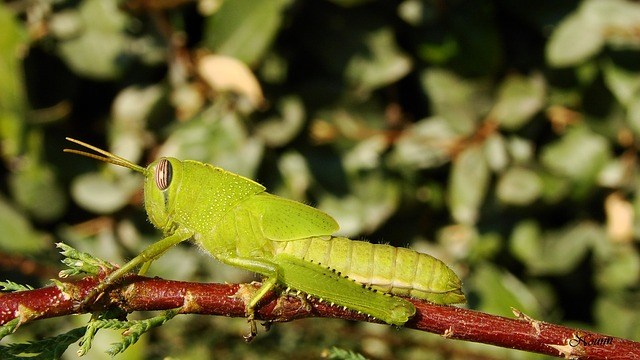
Desert Locust image papynoun
An alternative source of protein
Does our world produce some other source of animal protein, yes it does, but you might not like the idea. How about some crunchy insects? Eating insects is nothing new in our world, it’s just that in the Western world we are not used to it.
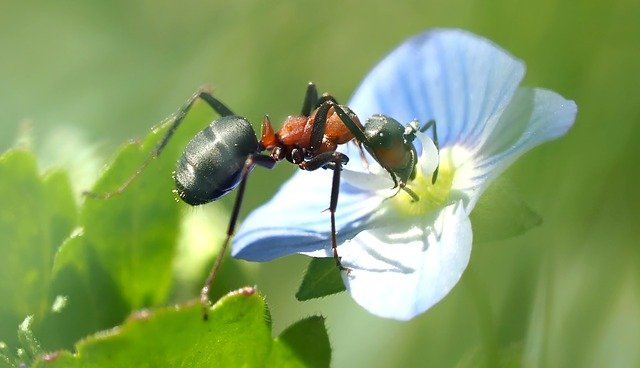
Closeup of ant image Kie-ker
Some history
In the book “Personal Narrative of a Pilgrimage to El Medinah and Meccah” written by the British orientalist, soldier, spy, and diplomat Richard Francis Burton (1821-1890) one can read about how to prepare a locust.
When people do not fear for their crops, they do not mind a fall of locusts. Boiled in salt water and then put out to dry in the sun for a few days, makes them a crispy bite. The head is taken off, and the stomach is removed as are the prickly part of the legs and voila, there is your tasty locust. Prepared with a mix of onions fried in clarified butter, a pinch of salt and pepper, and your locust dish is ready.
Are you brave enough to try this?
Following naturalist and noted bug chef David George Gordon, you could become a fan too, who knows? Anyhow, this book will teach you how to make a pasta salad with a cricket-y twist. Or, as dessert, you could try a White Chocolate and Wax Worm Cookie.
Remember, bug eating is an environmentally friendly source of protein. That fact could convince more than a few people to at least try it.
From the Uganda Journal, we learn that grasshoppers and termites are eaten, roasted or steamed. Children might put insects in the hot ashes to get rid of hairs. A preparation of steamed and dried termites, which are then pounded, end up as Ekipooli sauce. It is reported that they highly value this sauce in Uganda.
The Aborigines of Australia also had quite a different menu compared to what we are used to eating nowadays. They would eat many plant types and different animals. They would also eat all kinds of insects and part of their diet was a certain type of ants, grubs, moths, and beetles.
This YouTube video is only 2 minutes long. It shows you the colorful and varied diet of the native citizens of Australia.
Before the white man came, the Aborigines would walk for miles and eat what they would find. But nowadays they have taken on the bad habits of too much alcohol and fast food and their health has suffered.
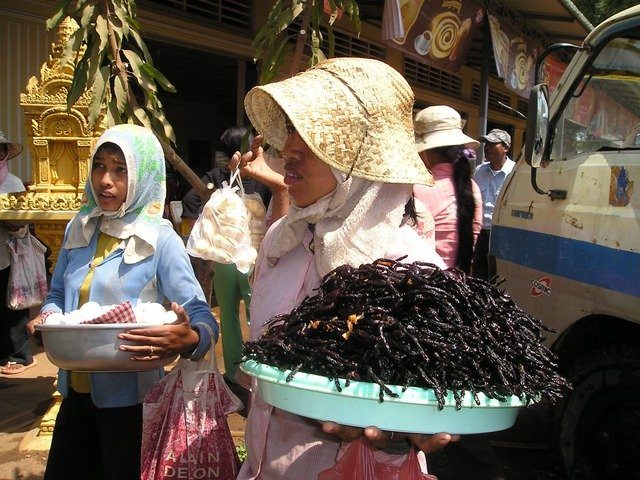
Selling insects in Cambodia image Simon
Asian countries where people eat insects
Let’s go to Asia, where people eat insects. Lots of them. It seems that in Southeast Asia, 200 different species of insects are consumed on a regular basis. Now that is what I call a varied menu, don’t you agree? This differs greatly from having a burger every day, right? Investors are monitoring the growing trend of eating bugs.
So, what do you think? Worldwide, in the past and now in the present millions of people eat insects. It looks like if we will have to reeducate our tastebuds and follow the trend. Our natural resources are getting depleted. Keeping too many cattle for meat is not good for our health and harms our planet.
We have to be open to alternative food sources. In a short time, we will hear about and start eating new foods like edible flowers, fruit leaves, all kinds of healthy seeds, and even roots. So why not also insects? They are, after all, a substantial source of protein. Studies have told us insects will be the most viable source of protein in the future.
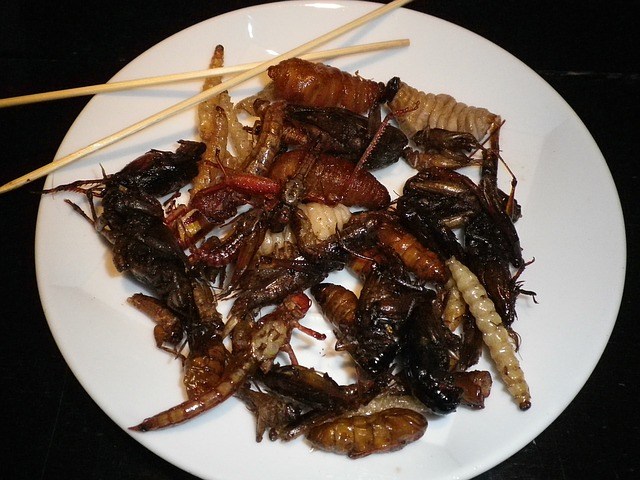
A Thai dish of fried insects image HOerwin 56
What is your food culture?
It seems that insects do not pass our throat very well. It has to do with food culture. Even if the situation is extreme, in general, a human being will not eat anything to survive. This brings to mind a story my Mother told me about the hunger winter of 1944 in Holland during the German occupation.
It was ice cold, people were dying from cold and hunger. They had cut most of the trees for fuel. There was hardly any food to be had, and valuables had been sold already during the previous hard years. To be able to have something warm in your stomach, my Mother, who used to cook for her parents and younger brother, made soup, 2 different types of soup. She made one of stingy nettle, which is actually a very healthy plant with a lot of iron. She made the other soup boiling tulip bulbs.
Our food culture, in general, does not admit eating our pets. We frown on horse meat and very few would consider a dog or a cat for dinner. Then again, there are different cultures which abhor eating pig or cow meat, it all has to do with food culture.
As an afterthought
Eating snails is already considered a delicatessen by many, and this includes in Spain. From a snail to a grasshopper or perhaps some roasted grubs or ants is not so far-fetched, perhaps time will come when we will also consider these insects as a yummy treat.
I have made a special page for you. Visit Recommendations perhaps there is something you find interesting.
Source: Sur in English, May 3rd to 9th, 2019 Article by Esperanza Pelaez, the World Digital Library
Photo Source: Pixabay
Here you can read about happy cows. Perhaps you care to read the following post.

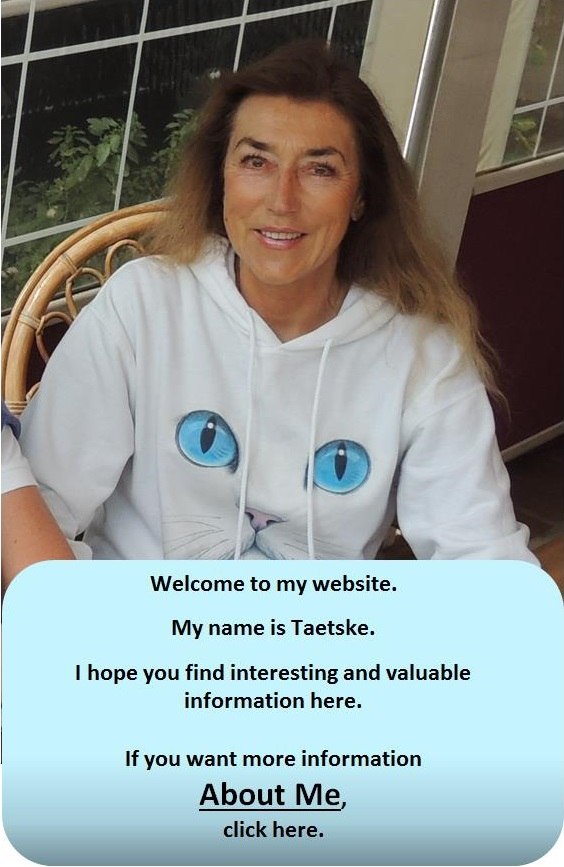





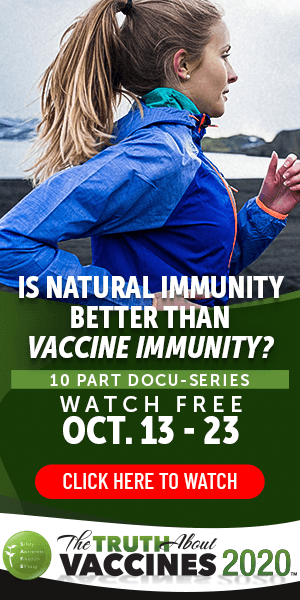



Comments
AnnetteCristina
Consuming insects can expose you to all kinds of bacteria that can prove harmful. Sorry, but there is no way in hell I’m ever going to eat a bowl of grubs. Sorry, but I beg to differ. The world’s population is starting to decline overall due to a variety of different factors. In the USA alone, women are having children much later in life and the number of children aborted far exceeds the number of live births. Norwegian academic who predicted overpopulation ten years ago, now says the world’s population will never reach 9 billion but rather peak at 8 billion by 2040 and then decline. Prof Wolfgang Lutz at Vienna’s International Institute for Applied Systems Analysis and a Deutsch bank report also predicts a similar decline.
That’s not to say there aren’t areas of the world that are overcrowded such as in parts of Asia, however, if you spread them all out evenly throughout the world, there would be more than enough room for everyone. Just a thought. I liked your article though as it got me thinking. Thanks!
Taetske
Good afternoon Annette,
Thank you for your comment. I hope you downloaded your free PDF?
I think that the boiling or frying will kill most bacteria so for me that would not be a concern. When one analyzes the food modern men put into their mouth, especially in the U:S: I definitely prefer a crispy grasshopper, of course not one sprayed with Roundup.
I agree with you, something big might happen and we do not augment the number of inhabitants. As I said in my post the human species is so good at destroying themselves. Mother Earth is also getting quite fed up by our actions and could surprise us. I might make it to 2040 if I take good care of myself. It would be very interesting to see where we will be going.
It is only a few days ago that I looked at the world map to inform myself of available space. Bangladesh is number 1, they are really crowded. To think this is a poor country and continuously they are flooded makes one think.
In Europe Holland is full, people stepping on each other. Now in the U.S, there are many vast spaces so no problem letting in more emigrants.
Perhaps the problem will be solved in an unexpected way. But to have a plan B is not a bad idea.
I am sending you a link where you can see the space which is available to the human race.
http://luminocity3d.org/WorldPopDen/#3/49.67/-10.72
Regards, Taetske
supportcme
Nice topic, I never knew that the insects have protein and nutritional benefits, But I never tasted an insect or a bug. This information is new to hear that insects are good for health, I heard that Asian people eat insect and I didn’t know the reason and now I know why they eat insects.
Thank you for sharing this interesting information.
Taetske
Good Morning,
Thank you for stopping by and leaving a comment. I hope you downloaded your free PDF?
In Spain, people do not eat insects but they do eat snails and edible flowers. I have tried that and it tastes great. We will be forced to keep an open mind if we want to survive as resources are getting low. Knowing insects are healthy and full of protein when the time comes I will give it a try.
Regards, Taetske
Andres Agudelo
Even though, I don’t like an insect. This is a really good informative article. The population in the world is growing really fast and there is just a small group of people taking care of the planet, however, people only care about their lives which is a problem ad they don’t know they are affecting the planet.
This article makes me understand that this is good and healthy. Those insects are mostly eaten in Asia, I know that because I have many friends from Asia and they say that this is a good way to survive in case something in the world happen and the regular companies don’t create a product anymore.
It is a great article to start thinking about the future and the problems that we may face. So we have here a way to feed us.
Thanks for the article.
Taetske
Good Morning Andres,
Thank you for your comment. I hope you downloaded your free PDF?
The world is changing because of climate change and every day there are more people. We will have to learn to adapt otherwise we will not make it. We will have to go back to nature instead of relying on what kind of food products big companies make. This might include eating insects. Scientist found out that insects are healthy so we better listen.
Regards Taetske
Dominic
I live in Southeast Asia, yes, but I don’t live in a country that promotes insect-eating. Having said this, I might not feel good adding insects to my everyday diet (though I could use some grasshoppers lol).
When I vacation to Thailand probably some time in the future, I might consider having one. Wish me luck!
Taetske
Good Morning Dominic,
When one travels it can very well happen you will eat something you are not used to. Personally, I like to try local foods. In 1974 I was invited for lunch in Manila. This restaurant served a buffet. I did not know what the dishes were but I put different things on my plate. Afterward, I was asked if I had liked my food. I said yes, it had tasted great. Then I was told I had eaten snake. I do not eat snake in Spain but I must admit it really was good.
Thank you for leaving a comment on my website. I hope you downloaded your free PDF?
Regards, Taetske
Samm
Hey Taetske
Wow! I bookmarked this page for future reference. Thanks a lot for taking your time and put all these together.
This is a very unique and interesting post and I’m glad that I found it.
I love reading your post especially the part where you mention about insects. I always wonder is it safe when people eat insects? Or what it tastes like? Anyway, I definitely will come back again in the future.
All the Best,
Samm
Taetske
Good Morning Samm,
Thank you for reading my post. I hope you have downloaded your free PDF?
Why would it not be safe eating insects? People have done that for thousands of years. The Aborigines in Australia have been doing that for 50.000 years. Generally speaking, I bet insects are cleaner than man-made foods. But the insects must live in a clean environment of course.
I think it is that we are not used eating insects if we were it would not be a problem.
Regards, Taetske
Linda Frankson
Well, this is quite different from what we have been writing about lately.
All the videos on healthy eating. I do agree that insects have a high
protein value but I think only if I was starving I would consider helping
myself to an insect food source diet. Posted this on HIG’s Always a Better Way
Taetske
Good Morning Linda,
Yes, it is different but still fits these modern times. Our actions shape and change the world in a very quick way. We better adapt to man-made changes. This might include a change of diet, who knows? It is us, in the Western world who are not used to eating insects but that time could very well come.
Just wait for a famous French or Spanish chef promoting crunchy grasshoppers. It will become a fashionable trend and everybody will follow. As long as the insects are not contaminated with pesticides I think we do not harm ourself.
Thank you for your visit and leaving a comment. I hope to see you again.
Regards, Taetske
Jenna Foster
Aloha Taetske!
This was quite a journey all over the world and different cultures of eating! I had very interesting feelings while reading. I remember years ago I watched a documentary about the Aboriginies and this particular episode was about hunting and gathering food. A HUGE caterpillar was one of the delicacies. It was baked in the earth oven. The images of the big wormy creature let my stomach cramp and persecuted me for days!
Recently, we received a package from my mother-in-law and she also added two cricket bars into that package. My husband ate them.
I think I’m not ready for insects yet. I’m not a meat eater too. I prefer fruit and veggies. I was vegetarian for 16 years until I worked so intense that this diet couldn’t feed me properly anymore. My meat consumption is low, and if possible I buy organically grown meat. In the past I watched many documentaries about was is called “meat production” and I’m on my way to find a good farmer who cares for his animals and grows them in love and appreciation.
How about you? Would you be able to eat insects?
Thank you for the awesome article! It is an important thought to change our eating culture! However, I would rather start with improving the conditions for animals we eat. And reduce meat consumption. We really don’t need so much meat! But I will work on it and stretch my mind. We will see. 🙂
Sending much Love and Light!
Aloha, Jenna
Taetske
Good Morning Jenna,
Thank you for your visit and leaving a comment.
I can imagine that you found this a slightly crawly post but I think we have to keep an open mind to things. Also, the fact that millions of people worldwide have and are eating insects makes one think.
In our Western world, we have kind of disconnected from nature and produce a lot of unnatural foods which are harmful to our health.
I had no idea that there are cricket bars on the market but then I must confess I have not started to eat insects yet either. The most unusual for me has been eating snake ragout, I did not know what I was eating and it tasted great.
The fact that so many animals are being held for food is sad. It harms our environment, it is not good for our health as these animals are given wrong and bad food and on top of that comes these animals are treated in an awful way.
All the best and I hope you will visit again.
Regards, Taetske
p.s.There are many things wrong in our world. We should change, and start to respect and protect all living things.
Aly
This is a really fascinating concept for discussion. Food culture is an interesting phenomenon that shapes our personal preferences from a very early age. Then you must add in the personal tastes (likes / dislikes) of the individuals involved to figure out a strategy for changing minds about food. These sound like high hurdles to clear, but with that said, I do know people who have willingly tried some of these!
Taetske
Good Morning Aly,
Thank you for your comment on my website. I hope you have downloaded your free PDF? Tulip widget.
The food culture in our countries is shaped by advertisement. Big companies that bombard with promoting man made food making us believe it is healthy for us. We are being fed this information walking on the street or through tv and the internet. Gone are the days we would reunite around the table for a home cooked meal. This brainwashing has not improved our health, rather the contrary.
Perhaps one day we will see billboards with yummy grubs or Bill Gates advertising his lab created meat, who knows?
Regards, Taetske
Lizzy Stabel
I have tried eating dried insects once or twice, I bought them from an organic store. Also, some type of worms. I must say that they tasted quite crunchy haha. There was also some discounted pasta available. At the moment, that is still pretty expensive though.
For the environment and for our health, that would be a good thing. Let’s hope that people will start eating more insects instead of red meat (too often) and that could help for sure in my opinion!
Taetske
Good Morning Lizzy,
Here in Spain, where I live I have not seen insects yet but to be honest I did not search for them either. For the moment, I enjoy seeing them alive on my organic farm. The most exotic I ever had was a snake stew while being in the Philippines in 1974.
I just wonder if we eat too many insects, there will be a considerable gap in the food chain and other animals could suffer. We should try to keep the natural balance, something humans often forget.
Thank you for your visit and for your comment. I hope you downloaded your free PDF? Tulip widget.
Regards, Taetske